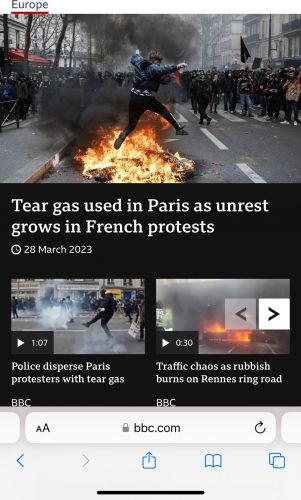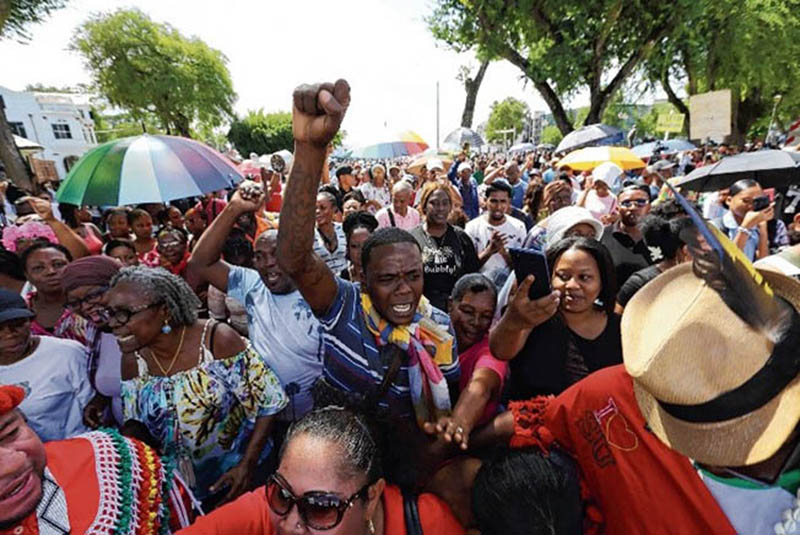 The land of baguettes, macarons and luxury has caught fire yet again and I don’t say such to gloat or make fun, but rather to serve as a reminder that even the most idealistic places that we tend to romanticise and idealise have their own problems.
The land of baguettes, macarons and luxury has caught fire yet again and I don’t say such to gloat or make fun, but rather to serve as a reminder that even the most idealistic places that we tend to romanticise and idealise have their own problems.
French people protesting, for some reason, is always seen as a revolutionary act especially when compared to other nationalities and one that hardly ever receives any amount of condemnation. It’s written in their DNA, some say, a right of passage for every French person since they killed their King. Whether it was the French farmers using their machines to spray French offices with slurry and dumping manure and rotten vegetables in front of public offices in (2014) or just recently setting the Bordeaux town hall ablaze, these behaviours hardly ever seem to attract the usual outcry others do. Their sense of self worth and deservingness always seem to justify their behaviour, as it should.

How could it not, when stomachs are empty, bills are high and uncertainty is rife and there seems to be a sense of unconcerned response from the government? In retrospect it means people are now competing with material things and with a system that doesn’t centre humanity and people’s well-being at its core. The destruction that follows is usually people begging for their humanity to be recognized.
The second layer to this problem as to why we humanise some protests and not others is simply because of racism and anti-blackness. It is why the media reports protests in France as people simply standing up for their rights, while black and brown people get labelled as destructive and uncivilised. It is why people tend to lecture black and brown people on what are acceptable forms of protest, zeroing in on every minute detail.
If we look intentionally and with empathy we would see that the concerns of the French are really not that different from those of the Surinamese who back in February protested the high cost of living and then were met with retaliation from the state.
While both groups are made up mostly of the working and labouring class and each being made to work without much security whether it be food security or an ever-changing pension security, the common theme remains that the ruling class is hardly ever deeply concerned about day-to-day lives of the working class. It is hardly ever prepared to put systems in place to deliver equity.
Our general disregard for when black and brown people protest is as if what they are protesting should somehow be acceptable because their bodies are deemed destined for suffering and pain. It is another reason why almost every time there is a terrorist attack, sympathy and coverage roll out in varying ways. While we can’t do much as it relates to how we have been consciously and unconsciously trained to think about protests and human rights, what we can do from now on is to learn to respect protest and permit it even when it disrupts ‘social order’ or what we believe it to be. Though perhaps it wasn’t even an ethical social order to begin with.
Alternatively, instead of looking at where the protests are taking place and who are the people involved, it might serve us better to look at the root causes and if we are to be truly honest we would see that members of the working class globally have so much in common despite where they are from and who they are.










